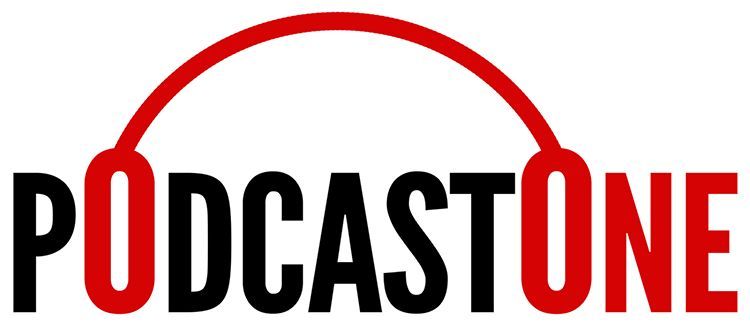
Weekly Roundup: November 1-5, 2021

Modernization Will Fuel Continued Progress. The federal government is making progress in its digital-first strategy to improve the delivery of citizen services, and it must continue to adopt new technologies, new techniques, and new approaches to keep up with the pace of change, notes Deputy Federal CIO Maria Roat. “Digital delivery is a necessity, and our customers – internal employees [and] the external American public – expect that delivery to be quick, easy, secure, and … accessible. It’s a business discipline, we must embed it in everything we do,” she says.
TMF Spending Spree Kicks Off. Saddled with a heavy set of expectations for its potential to jumpstart Federal IT modernization, the cash-rich Technology Modernization Fund kicked off its billion dollar-plus spending spree on September 30 with $311 million of awards to Federal agencies. In “normal,” pre-pandemic times, that size of that funding round – which more than triples all previous TMF funding activity – would be headline news on its own.
JUST RELEASED | Draft Baseline Criteria for Consumer Software Cybersecurity Labeling. The President’s EO on “Improving the Nation’s Cybersecurity (14028)” charges @NIST & others to initiate pilot progs for #cybersecurity labeling. Comment on our Draft Baseline Criteria for Consumer #Software #Cybersecurity Labeling by 12/16.
Evidence-Based Policymaking: Survey Results Suggest Increased Use of Performance Information Across the Federal Government. Federal decision makers need evidence, including performance information, to determine if federal programs and activities are achieving their intended results. GAO surveyed federal managers across the government in 2020 about their use of performance information in different decision-making activities, like resource allocation. A majority of agencies, managers reported using performance information much more than in prior years and adoption of leading practices continues to move the “use of performance information” needle.
VA to Deploy EHRM at Another Location in February, Despite Continued Program Concerns. Despite recent scrutiny over program missteps and complaints from frontline staff, the Department of Veterans Affairs’ Electronic Health Records Modernization program plans to deploy the EHRM program at a second location in Columbus, Ohio, in February 2022, VA Deputy Secretary Donald Remy told lawmakers this week. Many members of Congress expressed their concern over VA’s planned deployment at a second location.
NASA Creates Tech, Policy, & Strategy Office. NASA Administrator Bill Nelson announced the merger of the space agency’s Office of Strategic Engagements and Assessments and the Office of the Chief Technologist, resulting in the creation of the new Office of Technology, Policy, and Strategy, in support of the Biden-Harris Administration priorities and focus on space strategy. Along with the internal merger, the agency also appointed new leadership positions.
CISA Issues BOD 22-01: Reducing the Significant Risk of Known Exploited Vulnerabilities. CISA has issued Binding Operational Directive (BOD) 22-01, Reducing the Significant Risk of Known Exploited Vulnerabilities, to addresses vulnerabilities that establishes specific timeframes for federal civilian agencies to remediate vulnerabilities that are being actively exploited by known adversaries. To support this Directive, CISA has established a catalog of relevant vulnerabilities. This catalog will be updated regularly, and organizations can sign up for notifications when new vulnerabilities are added.
Steve Kelman on dealing with negative information about your organization in the social media age. Social media involves internet-based platforms that allow individuals to generate their own public information content, independent of traditional media where journalists generate and curate content for the public to consume. As social media’s reach and influence continue, government needs to better understand the new forms of dissemination -- and, when appropriate, be able to react better. This is the topic of an article called Faster, Hotter and more Linked In: Managing Social Disapproval in the Social Media Era.
Hot Streaks in Your Career Don’t Happen by Accident: First explore. Then exploit. The research suggests something fundamentally hopeful: that periods of failure can be periods of growth, but only if we understand when to shift our work from exploration to exploitation…many of today’s wanderers are also tomorrow’s superstars, just a few months or years away from their own personal hot streak. Periods of exploration can be like winter farming; nothing is visibly growing, but a subterranean process is at work and will in time yield a bounty.
Employers must change to stem the Great Resignation. Employers should realize that employees prioritize appreciation, belonging, good co-workers, career potential, flexibility and autonomy, even if they do care about pay and benefits, says Aaron De Smet of McKinsey. Furthermore, the pandemic has changed people's perspectives and made them less receptive to being ordered to return to the old ways, says De Smet and other McKinsey experts. McKinsey
Why leaders should give structure and inspiration. Employees benefit from a mix of inspiration and structure because transactional and transformational leadership exist on "a continuum" rather than being enemies, George Couros writes. "Structures are required, AND we also want people to be motivated to find their own direction," Couros adds. George Couros
Why win/lose thinking is a bad strategy. Strategic mistakes are often failures of management, whether focusing too much on existing offerings or the myopia of thinking the only two outcomes are your company winning or losing, writes Steve McKee. "But you can choose not to be defeated: You have technical know-how, manufacturing capacity, a distribution network, R&D capabilities, access to capital, customer knowledge and, most importantly, imagination," McKee writes. SmartBrief/Leadership
Next Week on The Business of Government Hour: A Conversation on GAO's AI Accountability Framework. What prompted the Government Accountability Office (GAO) to develop and issue an AI Accountability Framework? What are the core principles that set the foundation for this framework? Join host Michael J. Keegan as he explores these questions and more with Taka Ariga, Chief Data Scientist and Director of the Innovation Lab at GAO and Steve Sanford, Managing Director, Strategic Planning and External Liaison at GAO...next week on The Business of Government Hour.
Broadcast Schedule: The show airs Monday at 11 a.m., and Friday at 1 p.m. on Federal News Network 1500AM WFED





